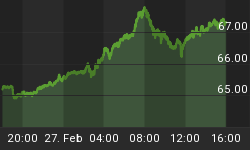As you file your 2011 federal income taxes, you are being bombarded in the media with frightening talk about an impending Taxmageddon befalling us as we wake up on January 1, 2013. Of course, if some of the more apocalyptic predictions of the coming end on December 21, 2012, of the "Long Count" Mayan calendar come to pass, then we will not have to concern ourselves with Taxmageddon 2013. But assuming that most of us will be around for January 1, 2013, what is Taxmageddon all about and what will be its cyclical macroeconomic impact on the U.S. economy?
At midnight on December 31, 2012, the current federal personal income tax rate structure will revert to the structure that prevailed at the close of the Clinton administration. And among other things, tax rates also will go up because of the additional taxes on investment income as part of the Affordable (Health) Care Act. All told, tax revenues will increase by about $500 billion in 2013, which is about 3.2% of the Blue Chip survey average forecast of 2012 nominal GDP. Moreover, because of the federal budget agreement, more like, disagreement, arrived at by Congress toward the end of 2011, federal discretionary outlays, including defense outlays, will be pared significantly beginning in calendar 2013.
Wow, "sucking" this much money from the economy via revenue increases and expenditure decreases is a Keynesian's worst macroeconomic nightmare. But, if you are not a Keynesian and "follow the money," you will have sweet dreams. To simplify things a bit, let's assume that the folks paying more taxes in 2013 were the same folks who would have bought the US bonds in 2013 to finance federal spending. Instead of lining up to purchase as many bonds in 2013, they purchase $500 billion less but pay $500 billion more in taxes. Either way, they were going to cut back their spending by $500 billion. Either way, won't that $500 billion being "sucked" out of the economy lead to lower total spending in the economy? Not unless the Treasury decides to let its cash balances increase by $500 billion. But, assuming the Treasury spends the $500 billion, then it will be "recycled" back into the economy. The net effect of all this on total spending in the economy? Zero!
But wait. Because of the legislated cutbacks in federal spending, the Treasury will not spend the full $500 billion it sucks out of the economy through increased taxes. Yes it will. What it won't do is borrow as much if it cuts back on spending. So, those folks who otherwise were going to lend to the Treasury in 2013 will now find themselves with excess investable funds on their hands. They have three choices with which to do with these excess funds. Choice One would be to lend these funds to some other entity - a household, a business or a state/local government - that wanted to buy something. Choice Two would be for the potential lender to decide just buy something herself. Or Choice Three, just hold on to the funds via a deposit at Northern Trust. Only Choice Three would result in a net decline in spending in the economy if the federal government spends and borrow less.
Now, of course, I have simplified the argument in order to show the macroeconomic impact on total spending in the economy. If you had not intended to contribute to the federal government's solicitation of funds via bond auctions in 2013 and instead are coerced into contributing via a higher tax rate, then you might see 2013 as Taxmageddon. But when we sum across all "yous," it is a wash when it comes to the macroeconomic impact on total spending on the economy. Those who are forecasting much slower growth in US GDP in 2013 could turn out to be correct, but not because of Taxmageddon 2013.
Paul L. Kasriel, post April 30, econtrarian@gmail.com















